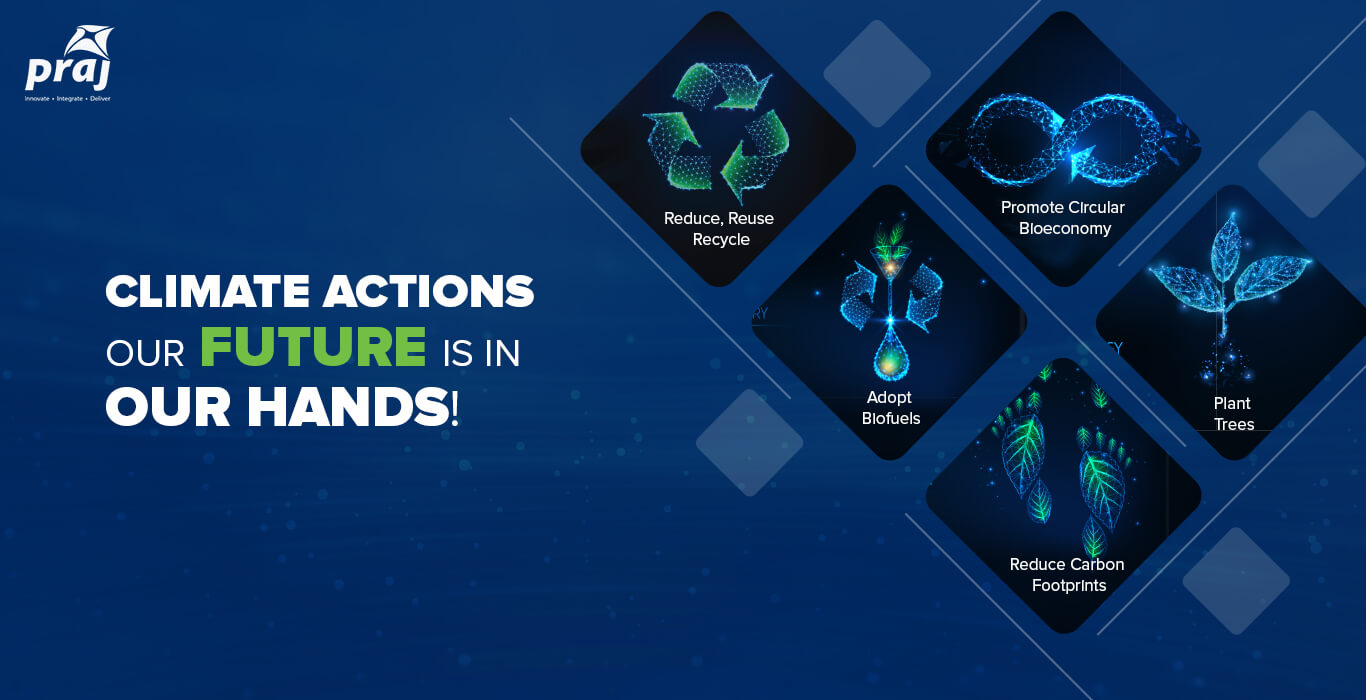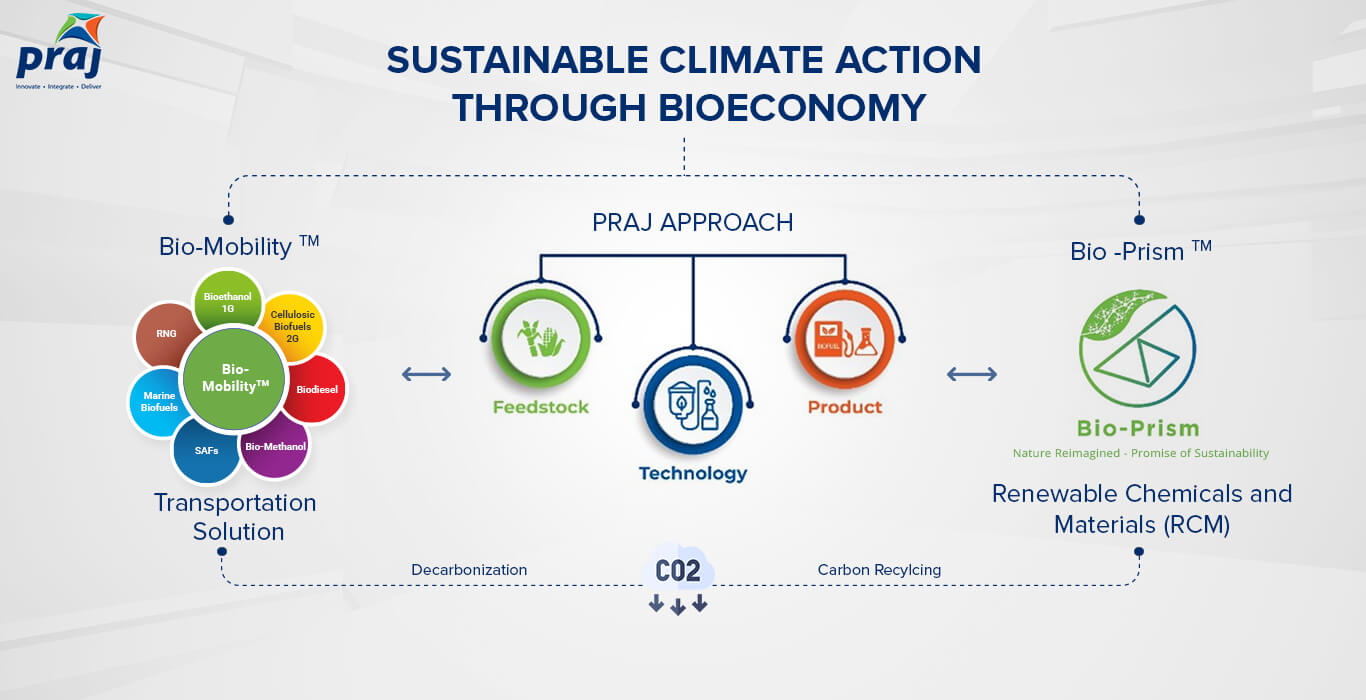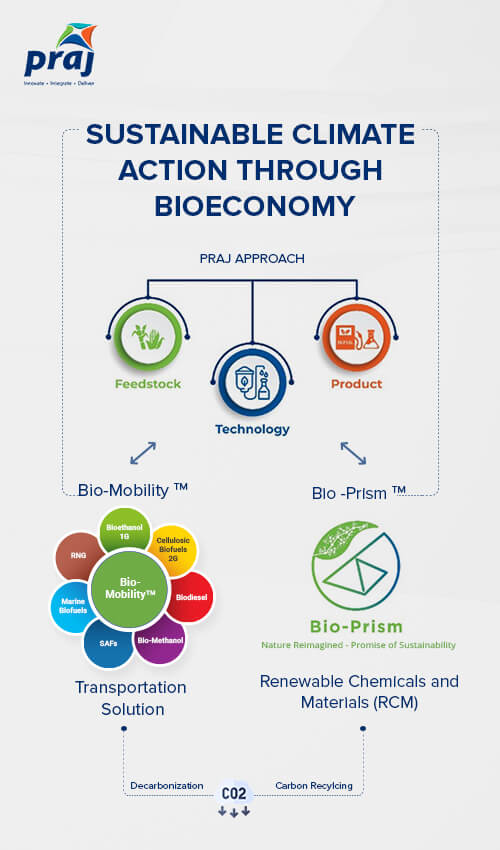The Role of Bio-Fuels in Promoting Circular Bio-Economy in India
Climate change is real and happening now, even as we speak! While the summer of 2019 dried out the throats of Chennai, parts of Maharashtra including Mumbai, Kolhapur, and Sangli were reeling under a deluge. While these extreme disparities may be attributed to improper town planning, another factor prominently at play is ‘climate change’, which is majorly a human-induced phenomenon. Emissions from industries and other human activities are warming up the world, disrupting rainfall patterns and increasing the frequency of extreme weather events. There is an alarming rise in greenhouse gas (GHG) emissions due to the consumption of fossil fuels in the transportation sector and also the brown clouding due to the existing practice of burning crop residues following harvesting. No doubt, climate change is impacting all the countries, and India too is bearing the brunt. In order to limit rising global temperatures and reduce man-made CO2 emissions as quickly as possible, there is a need for sustainable decarbonization.
What is Decarbonization and how does it help?
The term ‘Decarbonization’ means the reduction of carbon. It requires the building of an economic system that sustainably reduces and compensates the emissions of carbon dioxide (CO₂). The end purpose is to create a CO2 free economy – a bio-economy.
The need for circular bio-economy
A thriving economy that includes increasing reliance on biological processes and bio-based products is a key element of the overall global sustainability transition. The term, Circular Bio-economy, comprises the production of renewable biological resources and the conversion of these resources and waste streams into value-added products, such as food, feed, bio-based products, and bioenergy. Some of the goals of a circular bio-economy are to:
● Grow safe, nutritious and healthy food, animal feed, and supplements
● Promote the installation of Bioenergy plant and replace fossil fuels with Biofuels
● Develop new, more efficient and sustainable agricultural and marine practices
● Deliver solutions for Green and Sustainable Chemistry
The role of Bio-Fuels in promoting circular bio-economy in India
India imports nearly 80% of crude oil, which incurs high import costs. On top of it, the air quality in urban India is worsening by the day, thanks to the ever-growing vehicular traffic and emissions. This is where Bioethanol production can make a significant difference.
Blended fuel substantially reduces CO2 emissions along with other harmful gases. It is estimated that by blending only 20% ethanol, CO2 emissions can be brought down by around 10 million tonnes by 2022. This is important for a country like India which has agreed to a target commitment made at the climate change summit, to pull down CO2 emissions to 33% by 2030 with respect to the 2005 levels.
Currently, India consumes about 40 MMT of CNG per year out of which 65% is imported. Add to it the increasing demand in India which is growing at a CAGR of 15%. This has prompted the Indian Govt. to promote Compressed Bio-Gas(CBG) as an alternative to CNG. By even partially replacing petrol and diesel with CBG, India can bring down its crude oil consumption by almost 15-20% saving the tunes of almost Rs. 80,000 crores. Additionally, the government has set a target to triple the industrial production of ethanol in four years to save Rs. 12,000 crore in India’s oil import bill by mixing ethanol in petrol.
As such promoting biofuel in India will help in 3 key areas:
1. Significantly cut down on import cost
2. Notably, reduce pollution
3. Generate employment opportunities and increased returns for the farming community
Contribution of Praj industries towards creating a sustainable bio-economy
Praj was incorporated in 1984 with the objective to provide cutting edge solutions to the ethanol industry. Praj was recently awarded the 8th position in the reputed Biofuel Digest list as the hottest company in advanced bio-economy, also the first Asian company to make it in the top 10 rankings. They are setting up 2nd generation (2G) integrated smart biorefineries which are capable of processing multiple feedstock/ biomass like corn and sugarcane residue, rice or wheat straw, various lignocellulosic biomass to produce fuel-grade ethanol, biochemicals, bio CNG, liquid CO2, bio-fertilizers, and power exported to the grid. Praj is also working with Gevo, a US-based company, to produce jet biofuels. All these measures will eventually take us several steps closer to a bio-sustainable future.










